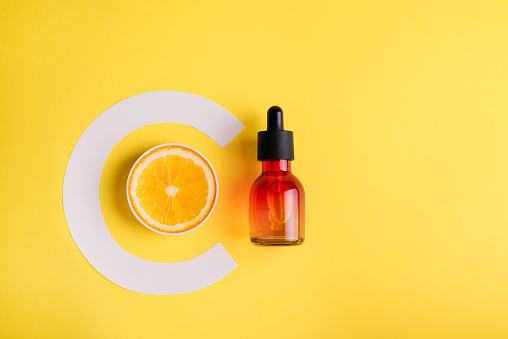Why you should include Vitamin C in your Skincare Routine

Why you should include Vitamin C in your Skincare Routine
Vitamin C, also known as ascorbic acid, is an essential nutrient with numerous benefits for the skin. It is a powerful antioxidant that can help protect the skin from damage caused by free radicals, which are molecules that can damage cells and contribute to developing wrinkles and other signs of aging. Vitamin C also produces collagen, a protein that helps keep the skin firm and elastic.
Vitamin C has lived up to its hype in beauty; despite much research supporting its effectiveness, consumers noticed a significant difference in skin texture, tone, and general health.
What are the Significant Benefits of Vitamin C to the Skin
Protects against sun damage
Vitamin C can protect against sun damage. When applied to the skin, vitamin C may help to neutralize the harmful effects of UV rays, which can cause sunburn, age spots, and even skin cancer. It can also help to reduce inflammation and redness caused by sun exposure.
Brightens the skin
Vitamin C may help improve the overall appearance of the skin. It can help brighten the skin, giving it a more even tone and a healthier-looking glow. It can also help reduce the appearance of fine lines and wrinkles, making the skin look more youthful and radiant.
Improves the skin’s health
Vitamin C may help improve the texture of the skin. It can help increase the production of collagen, which can make the skin appear plump and firm. It also helps improve skin elasticity, making it appear more smooth and supple.
Helps acne-prone skin
Acne can be a great challenge for anyone, and vitamin C benefits those with acne-prone skin. It helps by reducing sebum production, the natural oil that can clog pores and lead to acne. It also has anti-inflammatory properties that can reduce redness and inflammation associated with acne. There are different forms of vitamin C; acne-prone skin should opt for sodium ascorbyl phosphate (SAP). This form of vitamin C effectively suppresses existing acne and prevents the formation of new ones.
How do I get Vitamin C?
Vitamin C can be found in many skincare products, such as serums, moisturizers, and masks. It can also be taken orally as a supplement. It is essential to note that vitamin C is sensitive to light and air and can lose its potency quickly. It’s best to choose products packaged in airtight, opaque containers and store them in a cool, dark place. Also, start with a lower concentration and gradually increase it to avoid irritation.
In addition to topical products, consuming vitamin C through diet is possible. Eating foods high in vitamin C, such as oranges, strawberries, and bell peppers can give the skin the nutrients it needs to stay healthy and bright.
